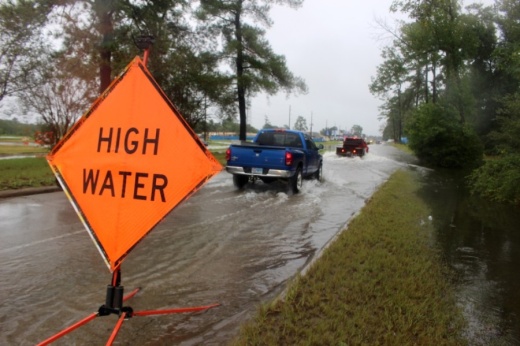“I believe every storm that has come in has been the earliest named storm for that time period,” Barron said. “Of course, all you can do is predict. ... From what we have seen so far, it does seem to be a fairly busy season.”
As hurricane season continues, FEMA adjusting its pre- and post-storm protocol in accordance with the ongoing COVID-19 pandemic.
"The COVID disaster isn't going away any time soon, so any storms that do come in mean that we are dealing with multiple disasters at a time," Barron said.
One of the biggest post-disaster changes this year is a change to recovery centers. In the past, FEMA would set up tents in a recovery area where people would show up for assistance. That has all been mostly moved to a virtual platform, Barron said. People can instead find that information on an improved website or over the phone, he said.
In late July, Tropical Storm Hanna made landfall in South Texas. FEMA has boots on the ground there now, but not as much than it would typically send due to COVID-19, Barron said.
“In the past, we would have more folks on the ground. In this environment, we are doing a lot of virtual damage assessments and inspections," he said.
Amid a pandemic, disaster preparation is even more important, as there may be fewer options for shelter during an evacuation, Barron said. One of the best things people can do is to get flood insurance, as it makes recovery easier and cheaper, Barron said.
FEMA has been preparing for a COVID-19 hurricane season since February, which has given the organization time to adjust its pre- and post-disaster responses, Barron said.
“It has been a welcome learning experience. The fact that the COVID-19 disaster happened when it did—several months before hurricane season—gave us a running start of how to deal with this,” he said. “There has been a lot of innovation, a lot we can use in the future.”





